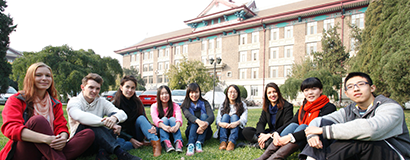The “Two Sessions”, a term used for the National People's Congress (NPC) and the Chinese People's Political Consultative Conference (CPPCC), are held annually in Beijing in the Great Hall of the People. This year, the CPPCC commenced on May 21, while the NPC began on May 22. Zhang Fengbao, a CPPCC National Committee member and Vice President of Tianjin University, expressed his views on poverty alleviation in an interview with China News Service.
2020 would be a year of milestone significance because China would finish building a moderately prosperous society in all respects and realize the first centenary goal. 2020 would also be a year of decisive victory for poverty alleviation. As for how to shake off poverty, Zhang Fengbao pointed out that we must make further progress in alleviating poverty through education.
“In my opinion, we should innovate the poverty alleviation mechanism and reduce the intermediate links of purchasing goods and services provided by the poor. Besides, in order to get rid of poverty, we must deepen efforts to boost poverty alleviation through education, pay particular attention to helping people increase confidence in their own ability to lift themselves out of poverty, and see that they can access the education they need to do so,” said Zhang Fengbao. He thought that among the remaining poor people, the causes of their poverty were complicated so poverty reduction remained a formidable task. He added: “Only through invigorating people’s confidence in their ability to eliminate poverty and helping them develop corresponding skills could we stimulate their vitality to make concerted efforts to shake off poverty fundamentally.”
The institutional advantage was the fundamental guarantee for China to lift its people out of poverty. Zhang said, “In the past four decades, China has brought more than 850 million people out of poverty, accounting for over 70 percent of all people lifted out of extreme poverty in the world, which relies on the institutional advantage of socialism.”
In addition, such institutional advantage was also embodied in the fight against COVID-19. The outbreak of the epidemic in 2020 brought immeasurable losses to China’s economy and people’s life. Under the strong leadership of the Central Committee of the Communist Party of China with General Secretary Xi Jinping at its core, people of all ethnic groups in China united as one to wage an all-out people’s war against the virus, making major strategic achievements.
Zhang said, “At present, the epidemic has been basically controlled throughout China. The growth momentum of imported cases is gradually weakening, and life and work are quickly returning to normal.” He added that as a country with 1.4 billion people, such achievements did not come easily. He thought the ultimate reason was that we have the institutional advantage to mobilize resources for major undertakings.
The COVID-19 outbreak was a big test for us, which reflected a country’s hard power and soft power. In the fight against COVID-19, China’s contribution bought precious time for the international community to enhance preparedness and set an example for other countries. Concerning the achievements Chinese have made, Zhang pointed out that Chinese people should be proud of China’s institutional advantages.
Under such special circumstances, the holding of the two sessions was of great significance and attracted worldwide attention. Zhang looked forward that more policies which were conducive to the economic recovery and the improvement of people’s wellbeing would be made at the two sessions. He thought as the epidemic situation in China was moving in a positive direction, people began to go back to normal life, but stimulating domestic demand became an urgent socioeconomic issue. Therefore, the government could offer preferential policies in taxation, fee reductions, and interest concessions, and continue to increase the budgetary investment in pensions, health care, and other aspects concerned with people’s livelihood.
By: Zong Shaomei
Editor: Sun Xiaofang






